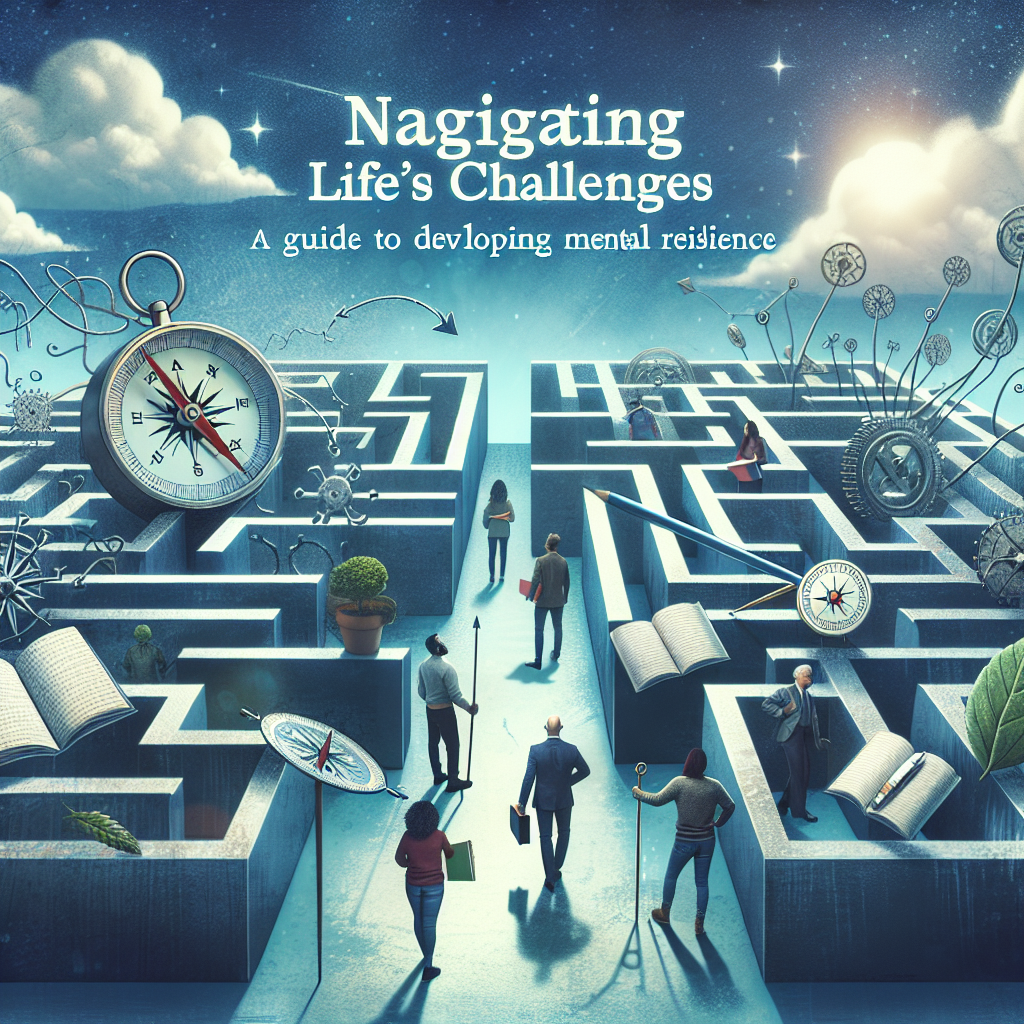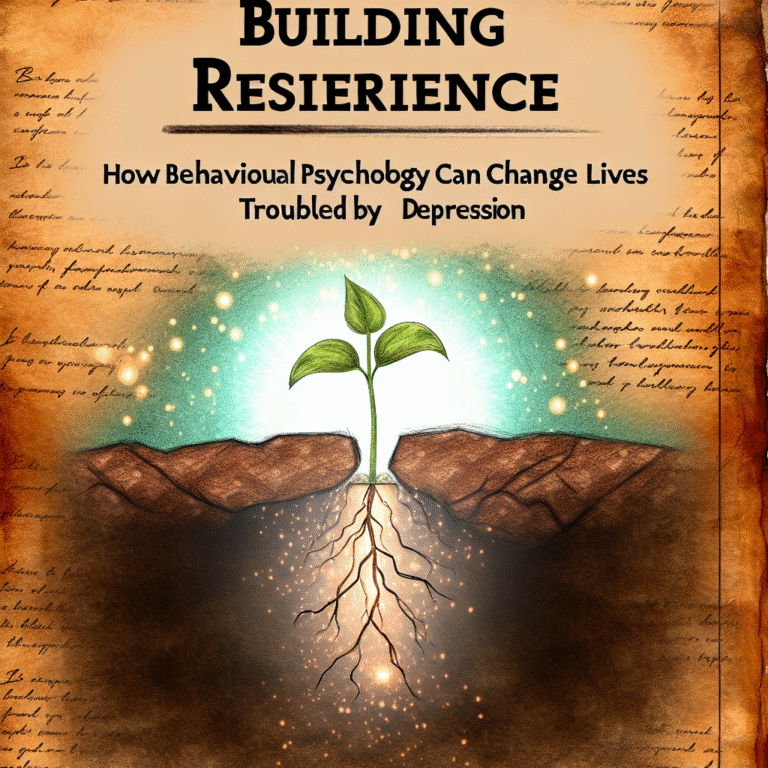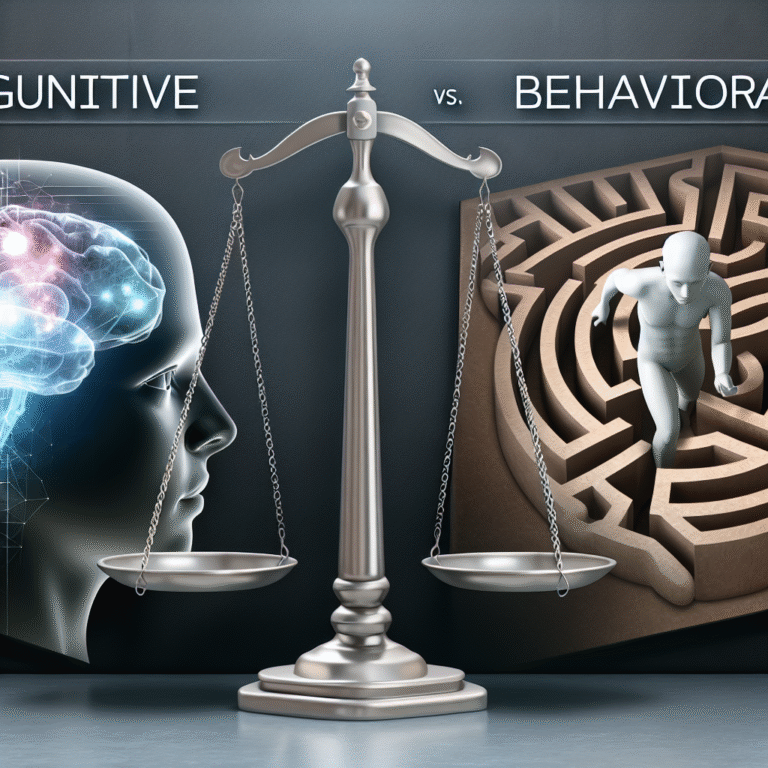
Navigating Life’s Challenges: A Guide to Developing Mental Resilience
Introduction
In a world that’s constantly changing and often tumultuous, the ability to navigate life’s challenges becomes more crucial than ever. Navigating Life’s Challenges: A Guide to Developing Mental Resilience is not just a topic; it’s an essential life skill that can empower individuals to thrive, even in adversity. Whether it’s personal loss, professional setbacks, or the daily stresses that come with living a modern life, mental resilience can make all the difference.
Imagine facing setbacks with confidence, overcoming obstacles with determination, and bouncing back stronger than ever. Mental resilience allows individuals to withstand stress, manage their emotions effectively, and maintain focus and motivation in challenging times. This in-depth guide will explore proven strategies, compelling case studies, and actionable insights to help you build and strengthen your mental resilience, ensuring you are well-equipped for whatever life throws your way.
Understanding Mental Resilience
What is Mental Resilience?
Mental resilience refers to one’s ability to adapt to stress and adversity. It involves a combination of emotional awareness, mindfulness, and problem-solving abilities. Resilient individuals don’t just cope; they thrive. According to the American Psychological Association, resilience is not a fixed personality trait but a set of behaviors, thoughts, and actions that can be learned and developed.
The Importance of Resilience
Why is developing mental resilience crucial? A multitude of studies indicate that resilience contributes to better mental and physical health outcomes, improved relationships, and a greater likelihood of achieving personal and professional goals. For instance, research from the University of Pennsylvania showed that individuals with higher resilience levels reported lower instances of anxiety and depression.
Developing Mental Resilience: Strategies for Success
1. Cultivating a Positive Mindset
A crucial aspect of resilience is adopting a positive mindset. This doesn’t mean ignoring challenges, but rather acknowledging them while focusing on potential solutions.
Case Study: The Growth Mindset
Consider the story of Thomas Edison. After countless failed attempts to invent the light bulb, he famously said, "I have not failed. I’ve just found 10,000 ways that won’t work." His ability to view failures as opportunities for growth exemplifies a growth mindset, which is essential for navigating life’s challenges.
Key Takeaway
Adopt a growth mindset by reframing your thoughts around challenges and viewing failures as stepping stones to success.
2. Building a Strong Support Network
Human connection is vital for mental resilience. Surrounding yourself with supportive and positive individuals can provide emotional nourishment and practical advice during tough times.
Case Study: Social Support in Cancer Patients
Research from the Journal of Psychosocial Oncology showed that cancer patients with robust social support systems were more likely to exhibit resilience and improved mental health outcomes. Having friends and family to lean on provides not just emotional comfort but also practical support.
Key Takeaway
Invest in relationships that uplift and inspire you, and don’t hesitate to lean on your support network when navigating life’s challenges.
3. Practicing Mindfulness
Mindfulness is the practice of being present in the moment, which can help reduce stress and improve emotional regulation. This practice is particularly beneficial when facing daunting challenges.
Case Study: Mindfulness in the Workplace
A study conducted by the University of Massachusetts found that employees who practiced mindfulness showed improvements in focus, reduced stress levels, and heightened resilience in the face of work-related challenges.
Key Takeaway
Incorporate mindfulness techniques into your daily routine through meditation, deep breathing exercises, or simply taking time to appreciate your surroundings.
4. Setting Realistic Goals
Setting achievable goals provides a clear direction and a sense of purpose, which can significantly enhance resilience.
Case Study: SMART Goals
A case study on the effectiveness of SMART goals (Specific, Measurable, Achievable, Relevant, Time-bound) in educational settings revealed that students who employed this goal-setting strategy exhibited greater resilience and perseverance, even when faced with academic challenges.
Key Takeaway
Break down your larger goals into smaller, manageable tasks to keep yourself motivated and resilient as you navigate life’s challenges.
5. Embracing Change and Uncertainty
Change is an inevitable part of life. Developing a mindset that is open to change can make navigating challenges less daunting.
Case Study: The Adaptability of Entrepreneurs
Research conducted by the Harvard Business Review highlighted that resilient entrepreneurs adapt quickly to changing market conditions, often turning setbacks into opportunities. Their ability to embrace change fosters creativity and innovation, which are crucial in overcoming challenges.
Key Takeaway
Adopt an adaptable mindset by seeking opportunities for growth in change and uncertainty.
Tables: Key Strategies for Developing Mental Resilience
| Strategy | Description | Benefits |
|---|---|---|
| Positive Mindset | Reframe challenges into opportunities. | Reduces stress, enhances motivation, fosters growth. |
| Strong Support Network | Build relationships with uplifting individuals. | Increases emotional support, improves problem-solving abilities. |
| Mindfulness | Practice being present and aware. | Reduces anxiety, increases focus, and promotes emotional regulation. |
| Realistic Goals | Set achievable goals that provide direction and purpose. | Improves motivation, builds confidence, fosters perseverance. |
| Embracing Change | Develop an adaptable mindset to approach change positively. | Enhances creativity, encourages innovation, fosters resilience. |
Conclusion
Navigating Life’s Challenges: A Guide to Developing Mental Resilience is an essential journey for anyone seeking to enhance their quality of life. Through cultivating a positive mindset, building supportive relationships, practicing mindfulness, setting realistic goals, and embracing change, you can cultivate the resilience necessary to thrive in the face of adversity.
As you embark on this journey, remember: resilience is not just about surviving; it’s about thriving. Ground yourself in your strengths, seek support when needed, and embrace the unpredictability of life with an open heart and mind.
FAQs
1. What is mental resilience?
Mental resilience is the ability to adapt to stress, adversity, and life’s challenges, involving a set of behaviors and thoughts that can help individuals thrive.
2. How can I cultivate a positive mindset?
You can cultivate a positive mindset by reframing negative thoughts, practicing gratitude, and focusing on solutions rather than problems.
3. Why is social support important for resilience?
Social support provides emotional nourishment, practical assistance, and encouragement during challenging times, which can enhance your overall resilience.
4. What role does mindfulness play in developing resilience?
Mindfulness helps improve emotional regulation and reduce stress, allowing you to stay grounded and focused during difficult situations.
5. How can I embrace change effectively?
You can embrace change by maintaining a flexible mindset, viewing challenges as opportunities for growth, and being open to new experiences.
This guide aims to equip you with the tools necessary for navigating life’s challenges with resilience and strength. So, take a deep breath, gather your courage, and step forward—your journey awaits!














